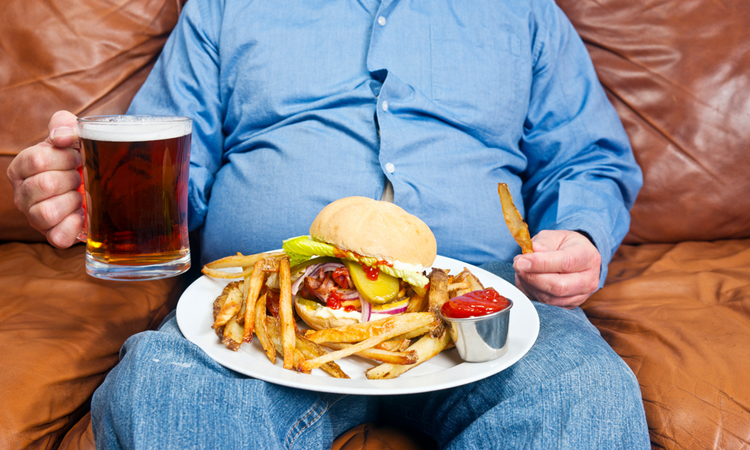Five strategies that work
Did you demolish a huge bag of chips after someone spread the mass lay-off rumor at work? Or maybe you attacked an entire container of ice cream after you heard you’d gotten into grad school, only to wake up sick the next morning?
If you find yourself eating mindlessly every now and then, you need to change your relationship with food. Lucy Jones, registered dietitian who works closely with Irish oatmeal brand, Flahavan’s, told Rewire Me, “An unhealthy relationship with food can develop when you don’t prioritize what you’re putting into your body.” Jones adds, “If you aren’t conscious of what you’re consuming, you are likely to have an unbalanced diet, and imbalance can be a sign of this unhealthy relationship.”
Some people use food to fight stress and negative emotions. People generally tend to eat unhealthy food when they are battling difficult situations. According to Allison Childress, nutritionist at Texas Tech University, “Stress prompts the brain to look for and engage in pleasure-seeking activities.” Childress explains, “For most people, eating is a pleasurable activity. Specifically, eating certain foods (such as foods that are high in fat, salt and/or sugar) is pleasurable. Therefore, stress can lead to craving certain pleasurable foods.”
If you want to change your relationship with food, here are five strategies to help you achieve your goal:
Make breakfast a priority
 Most people lead a fast-paced life these days. It’s easy to forget breakfast. However, breakfast is one meal that can influence your entire day. “Breakfast needs to be a priority,” Jones says. “Don’t be tempted to cheat. Cereal bars, biscuits or pastries are never going to be the same deal for your nutritional health, even if they are easier.” Think you won’t have time for breakfast this Monday? Jones recommends making homemade bars on the weekend, using oats, nuts and dried fruits to take with you.
Most people lead a fast-paced life these days. It’s easy to forget breakfast. However, breakfast is one meal that can influence your entire day. “Breakfast needs to be a priority,” Jones says. “Don’t be tempted to cheat. Cereal bars, biscuits or pastries are never going to be the same deal for your nutritional health, even if they are easier.” Think you won’t have time for breakfast this Monday? Jones recommends making homemade bars on the weekend, using oats, nuts and dried fruits to take with you.
The what-when-how formula
If you want to change your relationship with food, you need to eat mindfully. Shawn Talbott, nutritional biochemist and author of The Cortisol Connection: Why Stress Makes You Fat and Ruins Your Health — And What You Can Do About It, says, “We need to eat mindfully and with awareness about what we’re eating, when we’re eating it, and how it makes us feel.”
Talbott suggests watching out for the what-when-how of eating. What: every meal needs to have a balanced amount of smart carbs, lean proteins and healthy fats. When: focus on eating at regular intervals. How: pay attention to each meal, and see how it affects you. “The right food will help you become (and remain) energetic, happy, and focused. The wrong foods will leave you feeling bloated, fatigued, moody, and foggy,” he says.
Hit the streets
 Everyone knows the benefits of exercise. It can help you keep off extra weight. But physical activity can also regulate your eating habits. “It is a great way to curb cravings by keeping you distracted and can be a natural appetite suppressant as well,” Childress says. Feel a craving coming on? Just walk, if you can’t hit the gym. A March 2015 study published in PLOS ONE finds that a short walk is helpful in controlling sugar cravings in overweight individuals.
Everyone knows the benefits of exercise. It can help you keep off extra weight. But physical activity can also regulate your eating habits. “It is a great way to curb cravings by keeping you distracted and can be a natural appetite suppressant as well,” Childress says. Feel a craving coming on? Just walk, if you can’t hit the gym. A March 2015 study published in PLOS ONE finds that a short walk is helpful in controlling sugar cravings in overweight individuals.
Careful munching in front of the TV
Remember the old advice: do not dine while watching TV, as you may end up eating too much? Turns out this is true, at least for action shows.
In a study published by Cornell University last year, researchers divided participants into three groups: one watched the action movie The Island; the second saw Charlie Rose; and the third watched The Island without sound. The participants munched on M&Ms, cookies, carrots and grapes as they watched. The researchers found that the people watching the action show with sound consumed twice as much food as people watching the talk show. Results of the study demonstrate that action-packed television can distract you from eating, and you may gobble too much out of excitement.
Planning to watch The Avengers while grabbing dinner tonight? Finish your plate before you start watching the movie. And only keep healthy food in front of you during the film.
Step away from the table
 Tempted to grab that last bite of the pizza slice on your plate? Maybe you don’t need it. Kent Berridge, professor of neuroscience and psychology at the University of Michigan, says, “Sometimes if you end the meal even though you don’t feel full, and step away from the food for just 15 minutes, you will feel full.” Berridge explains that allowing 15 minutes to step away can allow cravings to subside.
Tempted to grab that last bite of the pizza slice on your plate? Maybe you don’t need it. Kent Berridge, professor of neuroscience and psychology at the University of Michigan, says, “Sometimes if you end the meal even though you don’t feel full, and step away from the food for just 15 minutes, you will feel full.” Berridge explains that allowing 15 minutes to step away can allow cravings to subside.
It may not be easy to break old, unhealthy eating patterns. But if you take little steps each day in this direction, you can successfully change your relationship with food.



